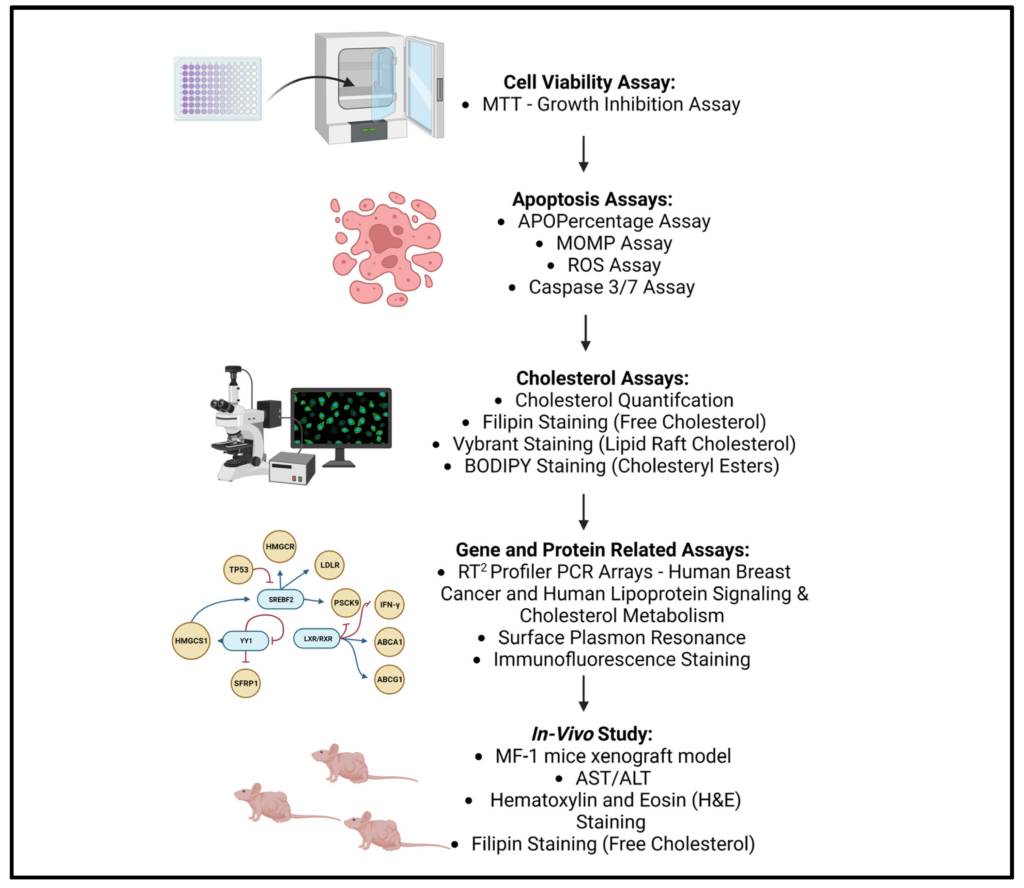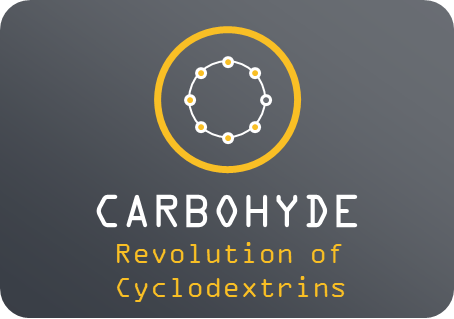today’s cyclodextrin:
Breast cancer is a global burden with the most severe subtype being triple-negative breast cancer (TNBC). Despite advances in conventional therapies, treatment for TNBC is currently lacking. Interestingly, cholesterol has gained interest as a potential therapeutic target due to cancer cells’ increased reliance on this macromolecule. Treatment with the cholesterol-depletory agent 2-hydroxypropyl-β-cyclodextrin (HPβCD) impeded the growth of cancer cells and further led to cancer cell death, which could be attributed to an altered cellular cholesterol profile following treatment. Furthermore, mice xenograft studies indicated complete eradication of early-stage tumours with no relapse, followed by a remarkable reduction in intermediate- and late-stage tumours, respectively. SFRP1 was identified as a possible molecular target facilitating the therapeutic action of HPβCD. These findings consequently potentiate cholesterol depletion as a novel anticancer strategy to be pursued.
University of the Witwatersrand – Tawanda Ziningav Reubina Wadee, Mandeep Kaur et al

